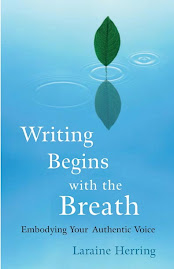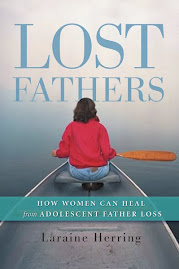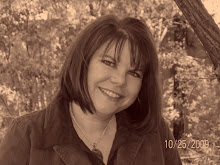Last night I drove out SR89 toward the tiny town of Wilhoit. The moon was two days from full. More than a decade ago, I drove up to Prescott after work on a Friday to meet my best friend Carol Anne at a Girl Scout camp off of Thumb Butte Road where she was spending her summer as a nurse. The moon was full that night, and as I drove along the winding dirt road toward Willow Springs Girl Scout camp (on a road I had no idea would be the road I now live on), the yellow pie of moon through the pine trees that had not yet been devoured by drought, fire and bark beetle, began to lodge in my blood. I spent the weekend at the camp (a camp I would work at, running writing circles for girls, for five years) and was reminded of the smell of earth, the itch of grass against bare ankles, and the kiss of running water. I was of course also reminded how much I loathe camping. (Sorry ... that hasn't changed)
When I returned home from my drive last night, I was a bit dizzy and went to bed early. I couldn't sleep. I stared at the ceiling, stared at the cats, stared at my feet under the down comforter. I thought about turning forty in a few months. I thought about my father, who only had six years left to live after he turned forty. I thought about the unspeakable beauty of the moon. A well of water gurgled and gushed in me, and I curled into myself and sobbed. The beauty was so unspeakable.
Then I thought of Phoenix. I rarely mention Phoenix without resentment. I hated that place since the first day we drove into it in the summer of 1981. Phoenix was never what I wanted it to be. But I kept crying. The cats jumped off the bed when I blew my nose. I remembered driving up to Cave Creek to visit my friend Gus when the moon was full. I remembered the way the Saguaros by his house looked in the amber light. I remembered how much I loved sitting out by the pond listening to him play guitar and watching the bats. I remembered my friends Arvin and Mike, who held me in their arms weekend after weekend for a decade while I returned to myself. I miss these three men.
I remembered my friend Carol Anne, my first best girlfriend since leaving North Carolina. I would not be here in Prescott without her. I would not have published three books without her. I would not have known how caged my heart was without her. I miss this woman.
I remember Phoenix College. The first creative writing course I taught was a two-credit class on writing dialogue in 1994. I taught it before I even thought of going back to graduate school. I walked away from that four week class knowing that teaching was the next step for me. I entered grad school, got a provisional community college teaching certificate (back when there was a board that did such things), and began to teach fiction. Turned out I was really good at it. Turned out that teaching fiction taught me to write it. Turned out that the more I asked my students to be vulnerable, the more vulnerable I had to be.
I taught at Phoenix College for almost a decade. During that time, I also ran writing circles for the Lost Boys of the Sudan and for Afghani refugee women. I was a poet-in-the-schools, and ran month long residencies in grade schools and middle schools. I ran 12 week grief and loss programs, and I was in charge of a weekly grief support group. I ran after school programs for at-risk teens and worked at summer camps (in spite of my camping resistance). I worked with the National Council for Alcoholism and Drug Dependency as a counselor. I ran writing groups for people in their first year of sobriety. I earned two master's degrees in four years, and I taught writing to every age group from kindergarten through graduate level.
My familiar, my beautiful orange cat Apricot, died while I was in Prescott for a weekend. My mom had come over to feed the cats and Apricot had curled up in the bathroom and vanished. When I came home on Sunday, I held her, wrote her a letter, and buried her in the solid earth of Phoenix. I had found Apricot the week my father died in 1987. I told her she would be my friend. But she wasn't just my friend. She kept me alive from 1987 - 1990. Her death in 2003 gave me my adult legs.
Phoenix took my father. He's buried in that place. Phoenix gave me my first break in a little off the wall theatre company called Planet Earth. Planet Earth gave me my friend Jeffrey, who has given me San Francisco and Italy.
I found my first yoga teacher, Eric, at Yoga Pura in north Phoenix. He taught me to breathe. He taught me to be still and feel. He put me in pigeon pose, where I cried in the middle of a 7 am class, and didn't say a word. He told me to keep my eyes closed during savasana; he told me I would deepen my experience if I didn't let the energy pour out of my eyes. He told me not to fidget.
Phoenix gave me eight years of experience in a corporate job doing copywriting and marketing. I sat in a cubicle, waiting for 5:00. That job taught me to multi-task, to purchase supplies, to contract out for services, to organize, to pay attention to details, to edit. It taught me how to say in 10 words what someone else had said in 100 words.
Phoenix gave me freelance textbook writing. I wrote science and social studies textbooks for 5th and 6th graders. I had to write reading comprehension questions. I had to write articles that were 250 words (not one word more or one word less). These articles had to be run through the Flesch-Kincaid reading level program. The F/K counts the number of syllables and the number of sentences in your piece and creates a ratio. This ratio determines whether or not the piece is written at a 4th grade level, a 9th grade level, a 12th grade level, etc. Not only did the articles have to be 250 words each, but they had to be exactly the grade level I was writing for. Try keeping things at a 4th grade level when the topic you're writing on is the rock cycle -- with big syllable words like igneous, sedimentary, and metamorphic. I learned how to be concise. I learned how to say what I mean. And I learned to detach from my work. If I hadn't learned how to detach from my writing, I wouldn't have been able to sell a word of it.
I received my first professional massage in Phoenix, as I began the long journey toward allowing myself to be physically touched again. Through my MFA program, I met Alma, my mentor, a woman whose writing I had admired for years. Through Alma, I have seen Mexico. Through Alma, I met Gayle, my beautiful writing companion and first reader. Through Gayle I found my agent, Linda. Through Linda, I sold LOST FATHERS and WRITING BEGINS WITH THE BREATH.
Through my Phoenix friend Gus, I found a circle of women in Prescott. Because of my teaching work in Phoenix, I found a full time teaching job at Yavapai College. Because I had planted roots, however reluctantly, in Phoenix, I was able to sell my house down there and buy a townhome here that overlooks Thumb Butte mountain, the same mountain I drove up on the way to Willow Springs camp so many years ago. Because of my yoga teacher Eric, I sought a yoga teacher here, and found Cain, a man who has helped radically shift my life since I moved to Prescott.
When resentment dissolves into gratitude, the body cannot contain the bright moon-glow of the heart. Thank you, Phoenix. May the salt water of my tears wash away the hard edges of your streets. Let there be a new relationship between us now. I don't belong with you, but I welcome all you have given me, and all that you have taught me fully and unconditionally into my body.
I am through fighting you.
You were never what I wanted you to be, but you were everything I needed so that I can now do fully what I am here on earth to do.
Ah, the blessed wetness of forgiveness.














